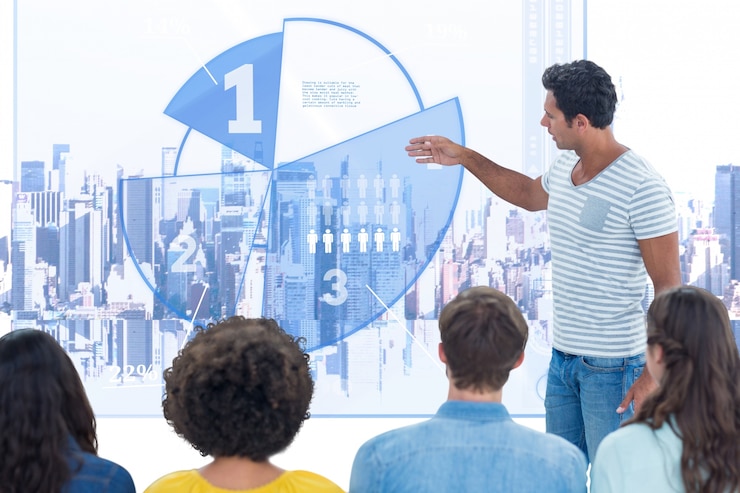

In today’s fast-paced world, hosting successful events requires more than just sending out invitations and hoping for the best. Event marketing has become a crucial aspect of organizing any gathering, be it a conference, trade show, or product launch. In this article, we will explore some effective event marketing strategies that can significantly boost attendance and engagement, ensuring your event leaves a lasting impression on attendees.
Know Your Audience
Before diving into the nitty-gritty of event planning, it is essential to identify your target audience. Conduct thorough market research to understand the preferences, interests, and pain points of your potential attendees. This information will serve as the foundation for tailoring your marketing messages and event offerings to resonate with the intended audience.
Craft a Compelling Event Website
Your event website will be the primary source of information for potential attendees. Ensure it is visually appealing, easy to navigate, and mobile-friendly. Include essential details such as the event schedule, speakers’ bios, and registration information. Implement clear calls-to-action to encourage visitors to register promptly.
Utilize SEO Strategies
Optimize your event website for search engines to increase its visibility in organic search results. Identify relevant keywords related to your event and incorporate them into your website content. This will improve your website’s ranking and attract more targeted traffic.
Leverage Social Proof
Display testimonials from previous event attendees or industry influencers who endorse your event. Social proof can build trust and confidence among potential attendees, convincing them that your event is worth attending.
Social media platforms offer a vast reach and are instrumental in promoting events. Create engaging content related to your event and share it across various social media channels. Utilize event-specific hashtags to encourage user-generated content and foster a sense of community among attendees.
Collaborate with Influencers
Partner with influencers or industry experts who have a significant following in your niche. Their endorsement and promotion of your event can generate a buzz and attract a broader audience, including event planners.
Run Exciting Contests
Hold social media contests with enticing rewards to encourage event registration and engagement. Contests can create excitement and enthusiasm around your event, motivating potential attendees, including event planners, to participate.
Implement Email Marketing Campaigns
Email marketing remains a potent tool for event promotion. Segment your email list based on interests and previous interactions with your events. Personalize your email content to make it more relevant and compelling.
Create Eye-Catching Newsletters
Design visually appealing newsletters that provide valuable event-related information. Highlight keynote speakers, workshop details, and any exclusive offers to entice readers, including event planners, to attend.
Use Countdown Emails
Send out countdown emails as the event date approaches. This creates a sense of urgency and encourages potential attendees, including event planners, to register quickly before they miss out.
Offer Early Bird Discounts
Everyone loves a good deal, and early bird discounts can be a powerful incentive for potential attendees, including event planners, to commit to your event early on. Offer limited-time discounts to create a sense of urgency and prompt early registrations.
LeveragePartnership
Collaborate with other businesses, organizations, or sponsors to expand your event’s reach. Partnerships can help you tap into new audiences and provide additional resources and expertise.
Engage with Attendees Before the Event
Create pre-event engagement activities to build excitement and anticipation. Host webinars, AMA (Ask Me Anything) sessions with speakers, or exclusive Q&A sessions to get attendees involved even before the event starts.
Create Engaging On-Site Experiences
During the event, focus on delivering memorable experiences for attendees. Utilize interactive booths, gamification, and networking opportunities to keep participants engaged throughout the event.
Leverage Live Streaming
Incorporate live streaming options for attendees who cannot physically be present at the event. This allows you to reach a broader audience and extend the event’s reach beyond its physical location.
Gather Feedback and Reviews
Post-event, collect feedback from attendees to understand what worked well and areas that need improvement. Positive reviews and testimonials can serve as valuable social proof for future events.
Conclusion
In conclusion, effective event marketing is the key to boosting attendance and engagement at your events. By understanding your audience, leveraging social media, utilizing email marketing, and creating engaging experiences, you can ensure a successful and memorable event that leaves a lasting impact on your attendees, including event planners.
FAQs
1. How far in advance should I start marketing my event?
It is recommended to start marketing your event at least 3 to 6 months in advance to give yourself ample time to build momentum and generate interest.
2. What role do influencers play in event marketing?
Influencers can significantly impact event marketing by reaching a broader audience and building credibility for your event.
3. How can I measure the success of my event marketing strategies?
Track key performance indicators (KPIs) such as website traffic, social media engagement, and registration numbers to gauge the effectiveness of your strategies.









